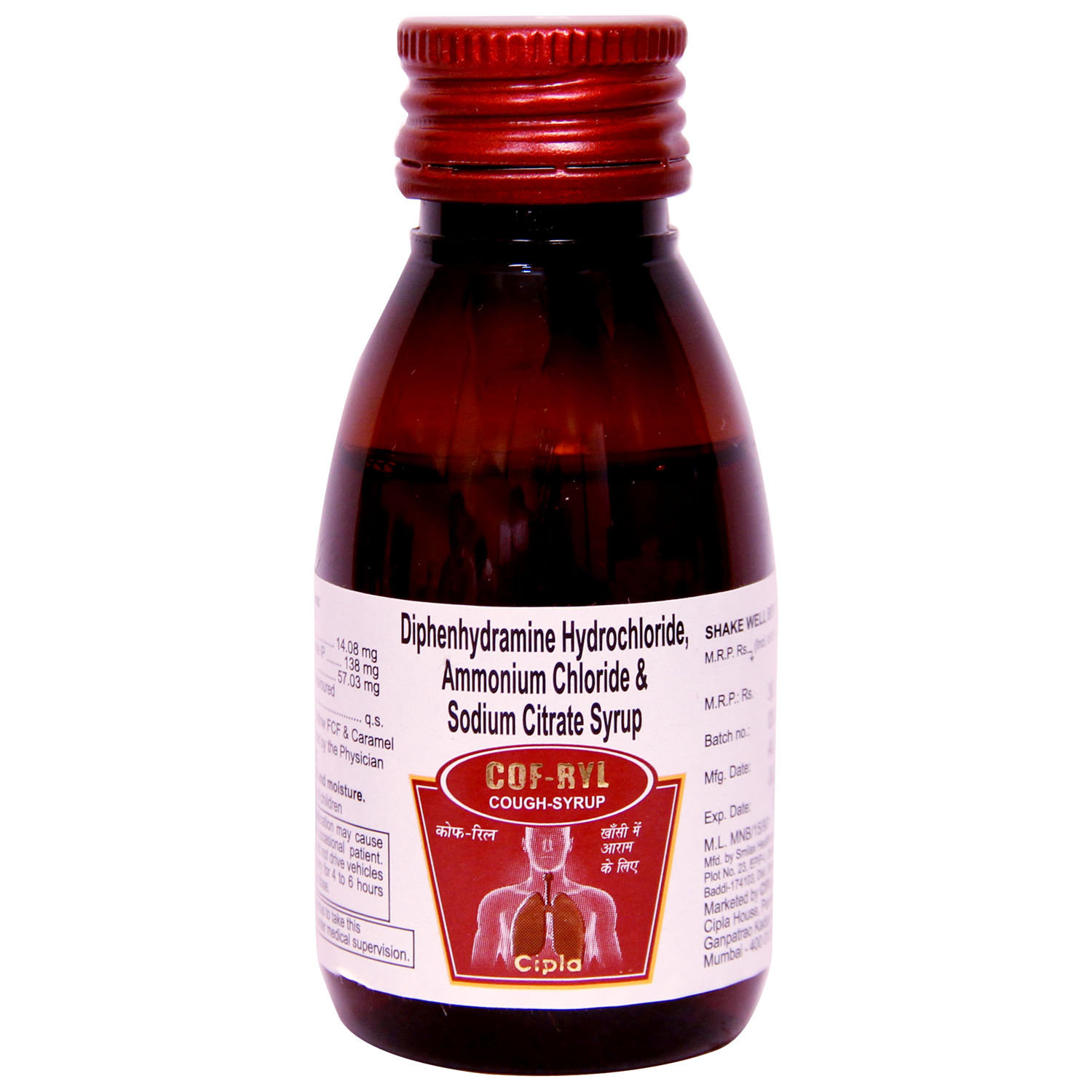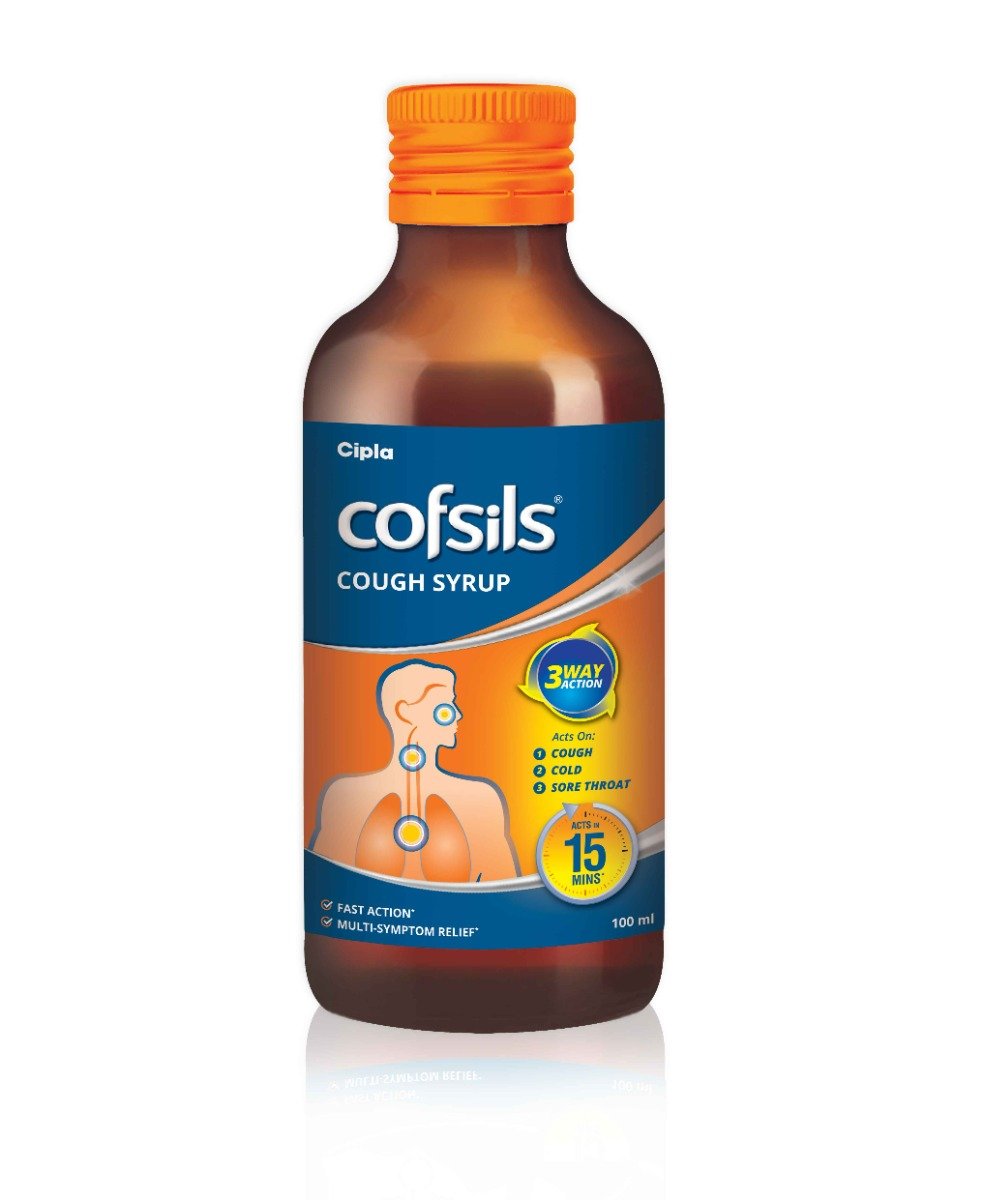- Home
- Cohist Syrup
Cohist Syrup Substitute
Cohist Syrup Substitute
Medicine Composition:
AMMONIUM CHLORIDE-138MG+DIPHENHYDRAMINE-14.08MG+SODIUM CITRATE-57.03MGAll Substitutes & Brand Comparisons
RX
Out of StockStayHappi Diphenhydramine+Ammonium Chloride+Sodium Citrate 14.08mg/138mg/57.03mg Syrup
₹36
(₹0.32/ 1ml)
20% CHEAPERRX
Out of StockRosperex Exp Syrup
₹39
(₹0.35/ 1ml)
12% CHEAPERRX
Out of StockSardryl Syrup
Saar Biotech
₹26
(₹0.39/ 1ml)
2% CHEAPERRX
Out of StockMonodryl Syrup
Monad Pharmaceuticals Pvt Ltd
₹55
(₹0.5/ 1ml)
24% COSTLIERRX
Out of StockCofryl Syrup 60 ml
Cipla Ltd
₹39.5
(₹0.59/ 1ml)
47% COSTLIERRX
Out of StockMatdryl Syrup
₹70
(₹0.63/ 1ml)
57% COSTLIERRX
Out of StockSuntuss CF Sugar Free Menthol-Raspberry Flavour Cough Formula 100 ml
Suncare Formulations Pvt Ltd
₹82.5
(₹0.74/ 1ml)
85% COSTLIERRX
Mahadryl Syrup 100 ml
Mankind Pharma Pvt Ltd
₹87
(₹0.78/ 1ml)
95% COSTLIERRX
Out of StockFibdryl Syrup
Fibovil Pharmaceuticals Pvt Ltd
₹89
(₹0.8/ 1ml)
100% COSTLIERRX
Cofsils Sugar Free Cough Syrup 100 ml
Cipla Ltd
₹92.5
(₹0.83/ 1ml)
107% COSTLIERRX
Cofsils Cough Syrup 100 ml
Cipla Health Ltd
₹92.5
(₹0.93/ 1ml)
132% COSTLIER

When Should You Consider Switching from Cohist Syrup?
Patients may explore substitutes in the following scenarios:
- High monthly cost of Cohist Syrup
- Non-availability in local pharmacies
- Generic recommendation by a doctor
- Side effects or better tolerability with alternatives
What to Know Before Switching
Before you switch from Cohist Syrup to another medicine, here are some important points to keep in mind:
Same salt, different brands:
Most substitutes contain the same active ingredient - AMMONIUM CHLORIDE-138MG+DIPHENHYDRAMINE-14.08MG+SODIUM CITRATE-57.03MG, but the fillers, coating, or manufacturing quality may vary slightly.
Consult your doctor first:
Even if the salt is the same, your doctor can confirm if the substitute is right for your condition, dosage, and health history.
Watch out for allergies or reactions:
Some people may react differently to certain brands due to inactive ingredients. If you notice any side effects, inform your doctor immediately.
Price ≠ effectiveness:
A lower-priced substitute doesn't mean it's less effective. Many generic medicines work just as well as branded ones.
Check the dosage form and strength:
Always match the substitute’s strength (e.g., 5mg, 10mg) and form (tablet, capsule, syrup) with what your doctor prescribed.
Uses
Medicinal Benefits
Cohist Syrup is a combination of three drugs: Diphenhydramine, Ammonium chloride and Sodium citrate. Cohist Syrup is used to relieve a cough accompanied by cold symptoms such as sore throat, runny nose, watery eyes, and sneezing. Additionally, Cohist Syrup helps in providing relief from allergies. Diphenhydramine is an antihistamine that works by blocking the action of a chemical substance called histamine, which is responsible for causing allergic reactions. Ammonium chloride is an expectorant that helps remove phlegm/mucus from the airways by decreasing its stickiness. Sodium citrate is a mucolytic agent that helps loosen the congestion, making it easier to cough out through the mouth. Together, Cohist Syrup provides relief from cough.
FAQs
The substitutes of Cohist Syrup contain the same active salt(s) - AMMONIUM CHLORIDE-138MG+DIPHENHYDRAMINE-14.08MG+SODIUM CITRATE-57.03MG. However, they may differ in price, manufacturing quality, and inactive ingredients. Speak to your doctor to find a suitable option.
Switching to a generic substitute medicine in the place of Cohist Syrup is often possible if it has the same salt, strength, and dosage form. But always check with your doctor before making any changes to your medication.
Generics versions of Cohist Syrup are typically more affordable because they don’t include the original brand's research, development, and marketing costs. They contain the same active ingredient and are approved for safety and effectiveness.
Most people don’t notice any difference. However, some may react to different fillers or coatings. If you notice any unusual symptoms after switching, consult your doctor.
Make sure the new medicine has the same active salt, strength, dosage form. Always confirm the change with your doctor or pharmacist.
Substitutes of Cohist Syrup meet the same safety and efficacy standards as Cohist Syrup, but small differences in absorption or formulation can exist. A doctor can help you choose the right one for your needs.
Yes. Substitutes of Cohist Syrup may vary in color, size, or shape due to differences in manufacturing and branding, but this does not affect how they work.
Yes, it’s generally safe to switch between multiple substitutes of Cohist Syrup if they have the same salt and strength. However, always inform your doctor so they can monitor how your body responds.
Yes, many people safely use substitutes of Cohist Syrup for long-term treatment. Just ensure it’s done under medical supervision.
If your symptoms stay under control or lab results remain stable, the substitute for Cohist Syrup is likely working well. Regular follow-ups with your doctor are important.
Absolutely. Even with the same salt, small differences can affect how your body responds when switching from Cohist Syrup to its substitute. Always consult your doctor before switching.




